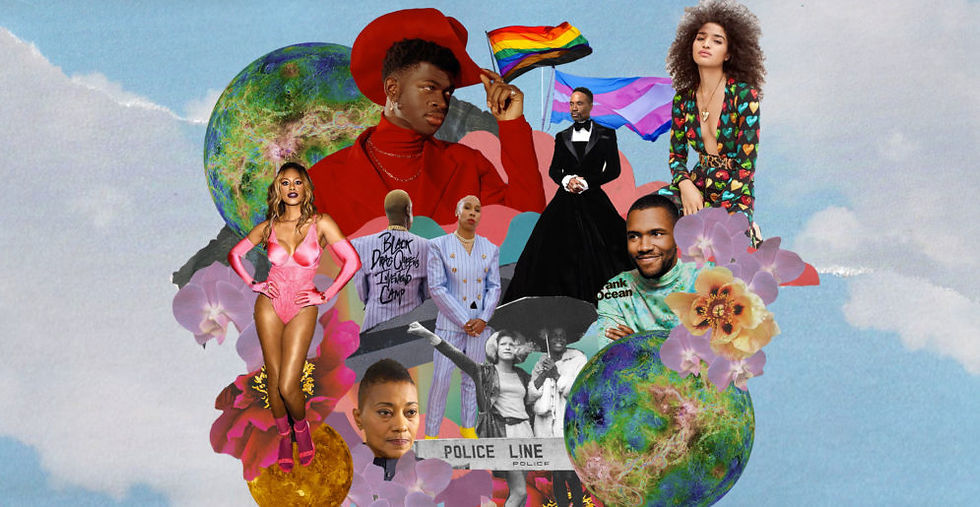How Black History Inspires Culture
- Natalie Howard

- Mar 30, 2020
- 3 min read
Updated: Apr 6, 2020

The start of February means the start of Black History Month. Black History Month celebrates the accomplishments and legacies of black inventors, musicians, artists, activists, and more. Black History as a whole is responsible for influencing culture in various parts of the world, from music to sports to fashion. And like many forms of culture cultivated by people of color, Black history does not always get the credit it deserves for inspiring a huge portion of what is deemed as popular in today’s society. So this Black History Month, it is important to remember what we owe black cultivators and know that their creativity and drive can inspire all of us to do something remarkable. Here are only a few of the most popular parts of American culture that we owe to Black History.
Music

It is no shock that Rap music and R&B derives from black experiences. But there are parts of every music genre that have heavy black influence. The birth of Rock n Roll would have never made such an impact without the musical talent of black artists. One of these artists is Sister Rosetta Tharpe. She was an American singer and songwriter who is responsible for the rise of electric blues. She inspired many artists including Chuck Berry and is known as the Godmother of Rock n Roll. Big Mama Thorton, another R&B singer, is known famously for her version of the record hit song “Hound Dog” which she recorded before Elvis, though his version is more popularly known. Without musicians like Tharpe and Thorton, Rock n Roll would not be as we know it today, nor would it be as popular. The specific style of Rock n Roll that became so desired in the 50’s derives from the sharp sounds of Rhythm and Blues and the soulful voices of the black singers that made it popular.
Fashion

From hair to makeup to nails, black women have inspired countless of fashion trends as early as the 1920’s. Josephine Baker and Esther Lee Jones were both entertainers who were known for their finger wave hairstyles and eccentric personalities. A few decades later, black fashion of the 80’s and 90’s found its way into American culture, although fashion trends like braids, dreads, and high tops, created uncomfortable and unaccepting environments for black people. Many jobs discriminated against afrocentric hairstyles on black people that in many cases cost them their jobs. Fashion trends deriving from urban neighborhoods that are predominantly African American are home to many fashion trends as well. It is a conflicting topic because those same trends that black people are condemned for are often praised on other races, specifically white people.
Pop culture

From slang to dance moves, American pop culture would not exist without black influence. The mainstream culture that surrounds America, what is deemed as “trendy” or popular would not be the case without black contributions. Black people place in pop culture is not only limited to the good, however. Black people's hardships shape the culture of America as well, since black struggle is American history. The way black youths become instantly martyred after losing their lives to brutality, the way black society rallies around each other in support and solidarity, even for other people of color, it is a representation of the “show up and show out” mentality. Black culture is a representation of love culture.
Black History month comes and goes every year, just the same as any other month. But for a huge part of America, it is a time of reflection, rememberance, and celebration. It is important to honor the pioneers of black culture, and respect black culture today. The best way to do that? Cultural education and appreciation. Happy Black History Month!





Comments